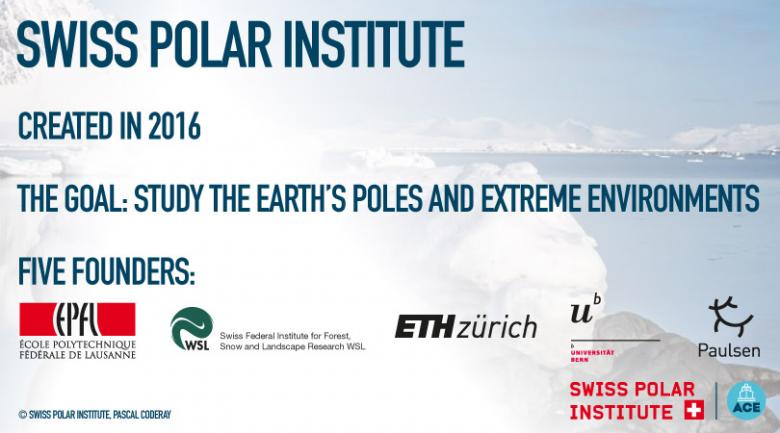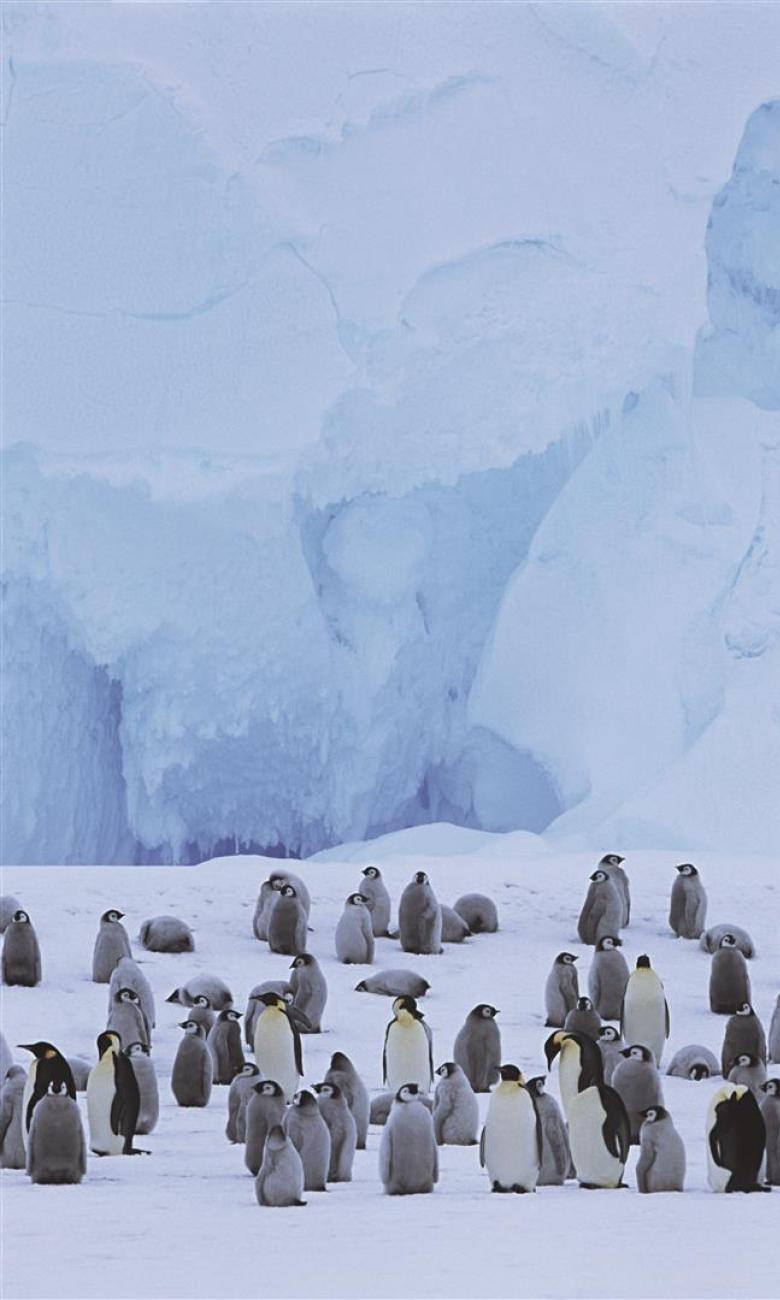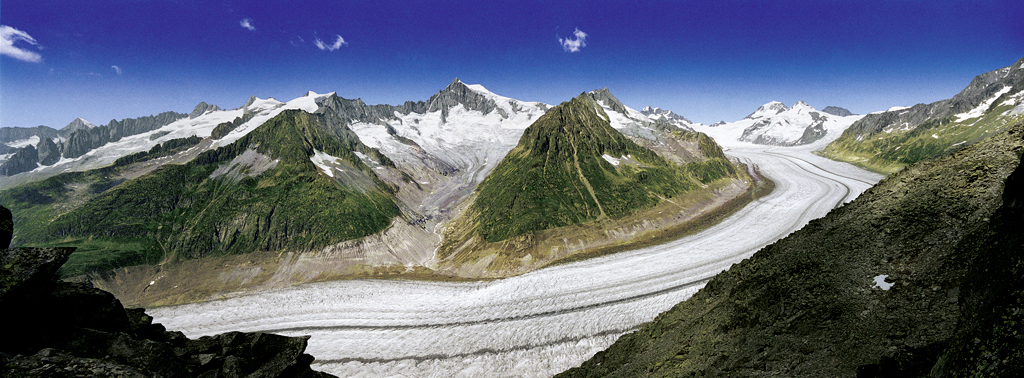When Switzerland enhances polar research
The Swiss Polar Institute (SPI) typifies the Swiss grass-roots approach to research. It is the result of an initiative by passionate and dedicated individuals who work with Swiss research institutions. The Swiss government is delighted to be able to support such initiatives.
The SPI is a good example of the many research platforms established and led by Swiss researchers, bringing together research excellence from all around the world to expand scientific knowledge.
Switzerland – a polar nation?
Switzerland is a landlocked country in the heart of Europe – thousands of miles from the poles. But if you thought Swiss scientists would be unlikely to feature among the world leaders in polar research, you would be wrong. Switzerland’s glaciers, ice and snow have shaped the country’s landscapes and people, and given rise to outstanding high altitude research. Research on high altitude and high latitude regions is mutually beneficial; the characteristics and applications of Swiss high altitude research bear a close resemblance to polar research.


There’s more to Switzerland than chocolate…
There’s more to this country than cheese, banks, mountains, watches and chocolate. Undeservedly, one of Switzerland’s less well-known qualities is its distinctive pioneering spirit. Solar Impulse, the first solar plane to circumnavigate the world without a drop of fossil fuel was an idea born in Switzerland and in 2016 the inauguration of the Gotthard Base Tunnel, the world’s longest railway tunnel (57.1km) further illustrated the country’s drive for innovation.
Switzerland ranked first in both the 2015–16 Global Competitiveness Report and the Global Innovation Index 2015. Paradoxically, the Swiss government has no explicit innovation strategy. In fact, the lack of top-down intervention might very well be a driving factor behind Switzerland’s highly innovative scientific community.

In its research funding policy, the Swiss government grants institutions the freedom to decide what kind of research to undertake based on their expertise and strengths. The government seeks to create favourable conditions for scientific research and to stimulate competition among institutions and companies. Switzerland’s appeal relies mainly on the quality of its research infrastructure, scientific freedom, the independence granted to scientists and an open research culture.
This pioneering spirit and the drive for innovation form the basis for Switzerland’s expertise in polar research.
Swiss excellence in polar research
Landlocked Switzerland began exploring the poles in the 19th century. Since then the Swiss scientific community has actively participated in multinational collaborations and international science programmes, becoming a world leader in the field of polar research.
In 1912, the Swiss meteorologist and polar researcher Alfred de Quervain led a team of explorers for the first time from West to East across the Greenland ice sheet.
The Mertz Glacier in East Antarctica, one of the research stops of the Antarctic Circumnavigation Expedition (ACE), is named after Swiss researcher Xavier Mertz.
In 1990, the Swiss Federal Institute for Forest, Snow, and Landscape Research set up the ‘Swiss Camp’ research station in West Greenland in collaboration with the Swiss Federal Institute of Technology Zurich.
International research
The Antarctic Circumnavigation Expedition (ACE) is the Swiss Polar Institute’s first project. Its aims are to understand earth’s poles better and enhance collaboration in polar research. Switzerland is a firm supporter of such initiatives.
International scientific collaboration and information exchange form the basis for the governance of Antarctica. Scientific facts are often fundamental for developing policy and formulating regulations in domestic and international settings.
Switzerland’s commitment towards Antarctica
The Antarctic Treaty System entered into force in 1961. It regulates international relations with respect to Antarctica, earth's only continent without a native human population. The treaty sets aside Antarctica as a scientific preserve, establishes freedom of scientific investigation and bans military activity on the continent. Today the treaty unites 53 parties, with Switzerland joining in 1990.
The Antarctic Treaty stipulates that Antarctica shall be used for peaceful purposes only, thus dedicating an entire continent to scientific research and international cooperation. Results from Antarctic research have to be exchanged and made widely available. The first project of the Swiss Polar Institute underlines and strengthens these endeavours.
Switzerland’s involvement in the Polar Regions is part of its foreign policy objectives: Swiss science diplomacy endeavours to open doors for our researchers abroad, to contribute to the worldwide promotion of Swiss expertise in research and innovation and to create new scientific cooperation schemes worldwide.
Both the Antarctic Treaty and the Arctic Council embody objectives shared by Swiss foreign policy, namely to actively contribute to stability and peace in the world.
Science has no borders.




